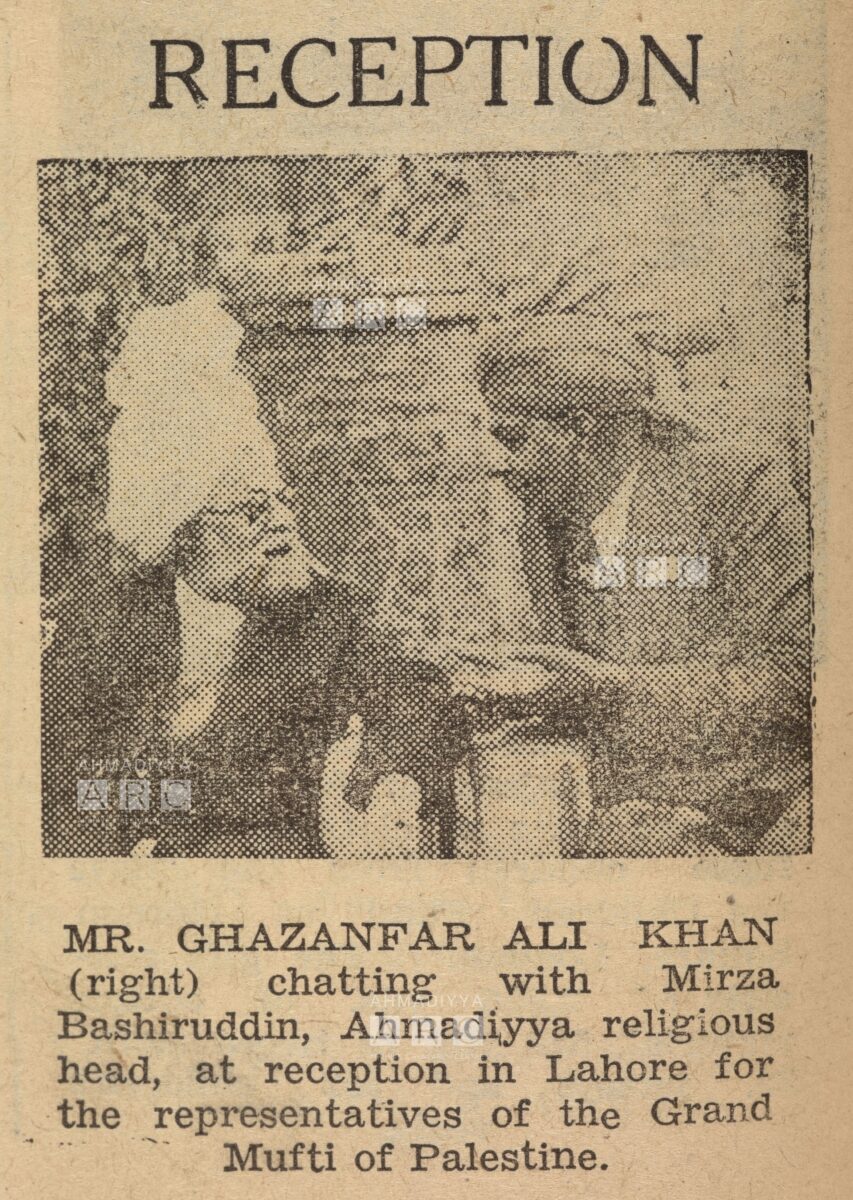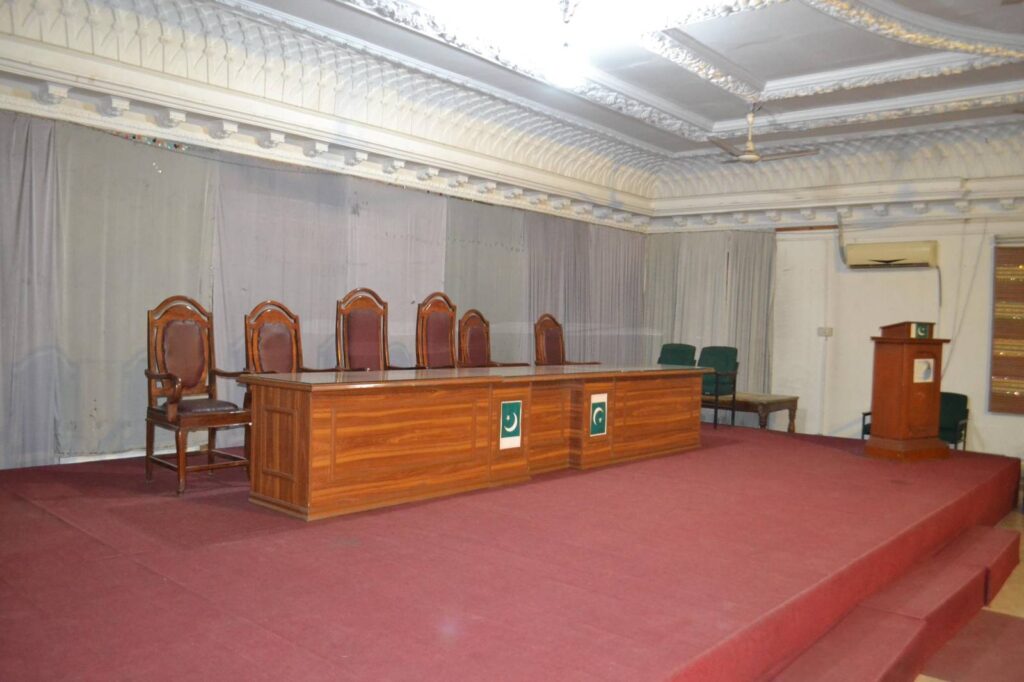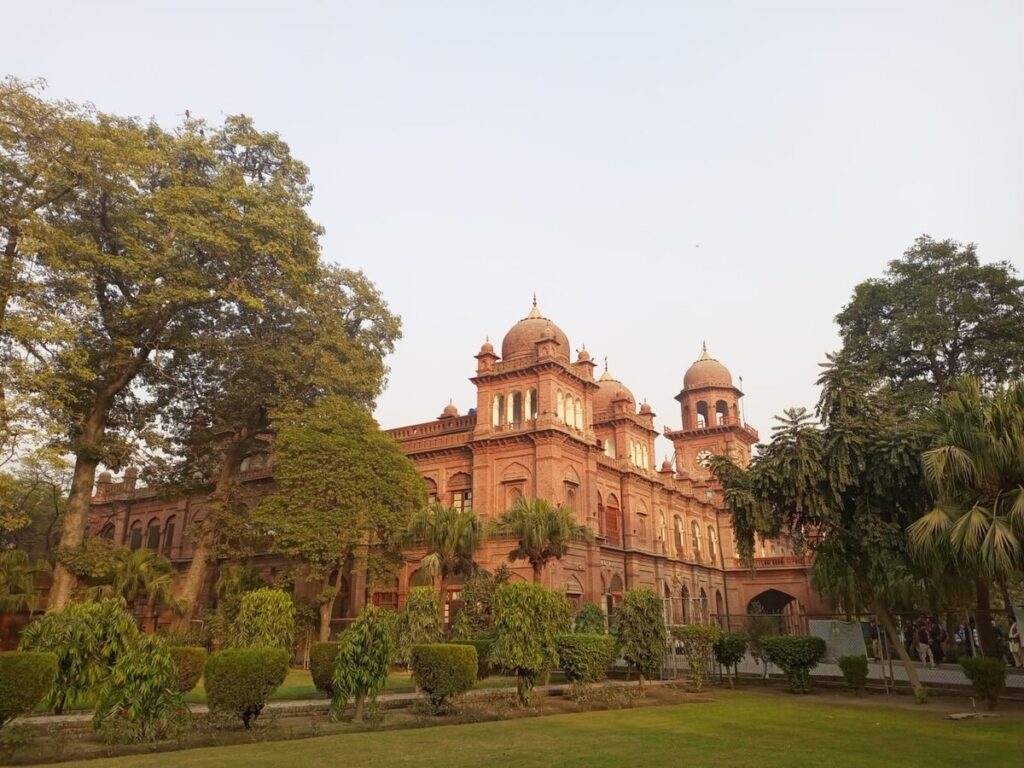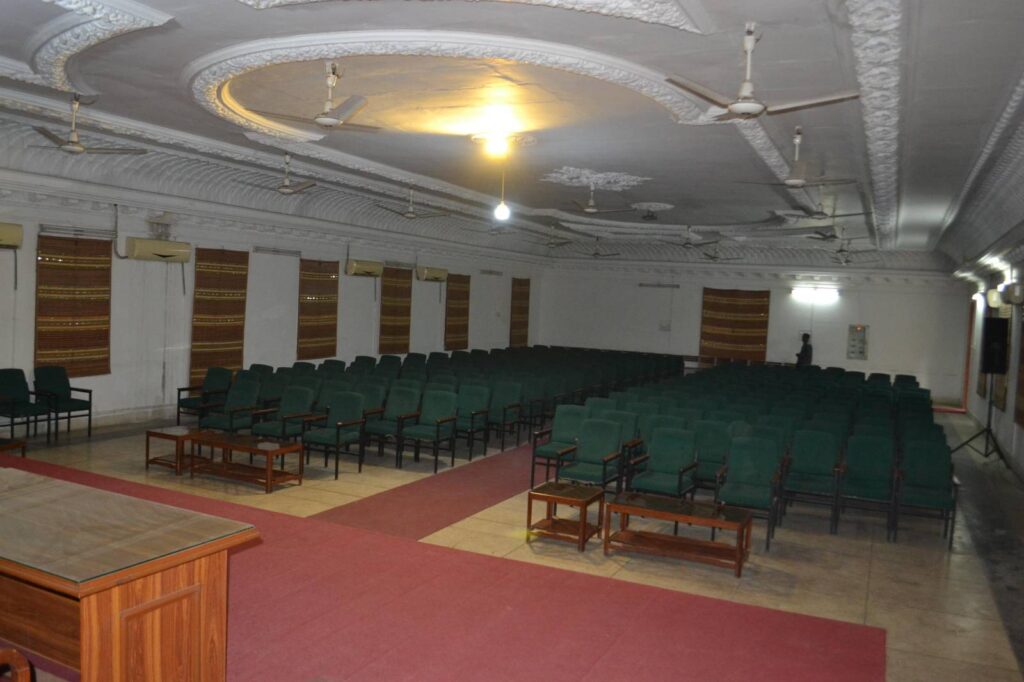Ata-ul-Haye Nasir, Ahmadiyya Archive & Research Centre

On 12 December 1948, Hazrat Musleh-e-Maud, Mirza Bashir-ud-Din Mahmud Ahmadra, delivered a lecture at the Maynard Hall (now Sheerani Hall) of the Law College Lahore, titled “Maujooda Halaat mein Aalam-e-Islam ki Haisiyyat aur uska Mustaqbil” – The Status and Future of the Islamic World in Light of the Current Situation. During this lecture, he highlighted the need for Muslim unity. The session commenced at 6:30 pm.
It is important to note here that at the time – for a short while after the Partition of India – Lahore was serving as the markaz of Jamaat-e-Ahmadiyya prior to Hazrat Musleh-e-Maudra migrating to Rabwah for permanent residence.

Law College Lahore
The Law College of Lahore is a law college of the Punjab University, Lahore. It is the oldest law institute in Pakistan, having been established in 1868. It was the first institute offering legal education to be established in a Muslim-majority area of the Indian Subcontinent. Since then, it has produced some of the most prominent lawyers, activists, statesmen, judges, bureaucrats, and politicians.
Earlier lectures by Hazrat Musleh-e-Maudra at this venue
In December 1947 and January 1948, Hazrat Musleh-e-Maudra had delivered five lectures at this hall, as part of a series of six lectures, titled “Pakistan Aur Uska Mustaqbil (Pakistan and its future)”. This series of lectures concluded on 17 January 1948.
For more details, see “Hazrat Musleh-e-Maud’s blueprint for a successful Pakistan: Highly praised yet neglected advice”, www.alhakam.org)
President of the session
The session was presided over by Justice Sheikh Abdur Rahman (1903-1990), commonly known as SA Rahman. He served as the 5th Chief Justice of Pakistan. Before the formation of Pakistan, he entered the Indian Civil Service in 1926 and served in the capacity of Assistant Commissioner and District and Sessions Judge in various districts of Punjab. He was appointed Judge of the Lahore High Court in 1946. In 1947, he was appointed as a member of the Bengal Boundary Commission. He retired as the Chief Justice of Pakistan on 3 June 1968.

Hazrat Musleh-e-Maud’sra lecture
During the early part of his lecture, Hazrat Musleh-e-Maudra shed light on the questions as to why the Muslim world holds a distinctive status in the world, what the political circumstances of the world are, and how they are impacting the Muslim world.
In this regard, Huzoorra stated that Islam holds certain distinctive features, and whenever European countries are faced with any issue regarding a certain Muslim country, they give it a religious and international form instead of taking it as a mere political and local issue, meaning that they attribute that specific issue to the whole Muslim world, and by doing so, they themselves acknowledge the Muslim world as a distinct entity.
Speaking about the manner in which the major powers of the world were impacting the Muslim countries at the time, Huzoorra also shed light on the reasons, based on which these major powers desired to weaken the Islamic world.
Mentioning the future of the Islamic world, Huzoorra said:
“In my view, the Islamic world’s future is completely safe, provided we [Muslims] act upon those means of success which the Holy Quran has prescribed for us.”
Narrating those means of success, Huzoorra outlined various proposals, which included:
(1) If European powers themselves acknowledge the Islamic world as a separate entity whenever they are faced with any issue regarding Muslim countries, why should not the Muslim countries foster a true unity and create a Muslim World in its true essence, and in addition to declaring themselves a part of their respective country’s nationalism, why should they not consider themselves as part of a bigger ‘nationalism’ — meaning the Islamic world.
(2) Islamic countries ought to dispel their internal enmities and instil a passion to offer sacrifices for each other.
(3) The people of Muslim countries are required to visit each other’s countries. In this regard, the youth should make collective efforts by establishing societies.
(4) The Muslim countries ought to have trade relations with each other.
(5) We ought to assist the Muslims of those areas that are more underdeveloped — for instance, Western and Eastern Africa, etc. — by establishing supportive anjumans.
(6) The Holy Quran has declared tabligh as the best means for Islam’s progress, so we should pay attention to this.

President’s concluding remarks
After Huzoor’sra lecture, the president of the session delivered the concluding remarks and said:
“Respected Mirza Sahib has spoken on a very vast subject in such a short time, and shed light on its multiple aspects. The constructive suggestions that he has outlined are very precious. We should strive to seriously ponder over them and try to act upon them.” (Al Fazl, 14 December 1948, p. 2)

